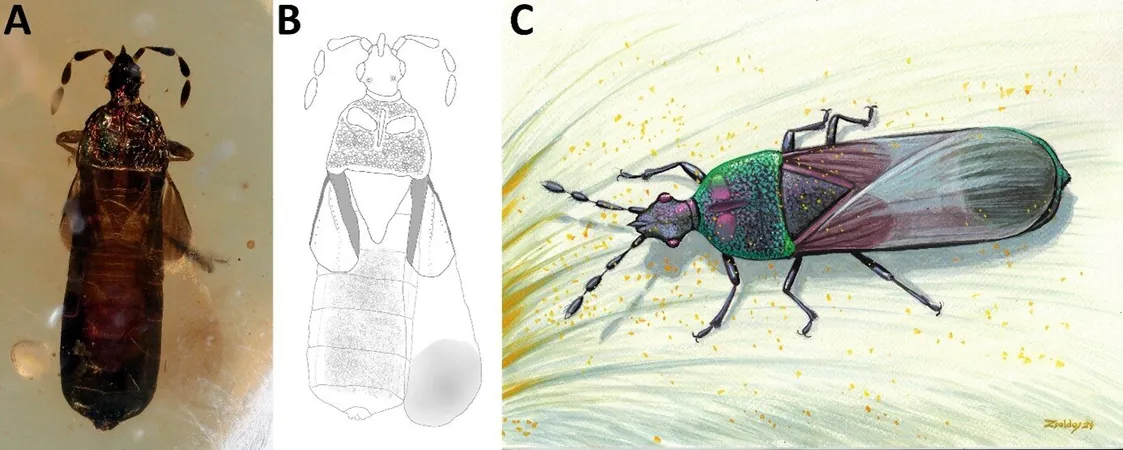
Blood Cancer Awareness Month: The Biotech Revolution in Treatment
2025-09-01
Author: Nur
Don’t Sleep Through September: Blood Cancer Awareness Month Has Arrived!
September isn't just another month. It's Blood Cancer Awareness Month, and while it may not receive the spotlight all year round, revolutionary strides in biotech are bringing hope to those affected by hematologic malignancies. These blood cancers often pose unique challenges, that require innovative solutions, and this September, we’re diving deep into the exciting advancements biotechnology holds.
Confronting the Genetic Roots of Blood Cancer
Blood cancers are frequently driven by specific genetic mutations that make them particularly tricky to treat. Acute myeloid leukemia (AML), for instance, can result from chromosomal rearrangements and mutations that effectively hijack how blood cells mature. This complexity is a key reason recurrences are common after treatment; even when conventional therapies work, a handful of resistant stem-like cells often remain.
Recent breakthroughs aim to directly target these cancer-driving genetic programs through innovative approaches such as: menin inhibition to disrupt critical interactions in leukemias with specific genetic profiles, and LSD1 inhibition designed to encourage malignant cells to mature. Syndax Pharmaceuticals has made headway with its menin inhibitor, revumenib, which won FDA approval for certain types of leukemias and is now being explored for broader use.
Enter the Era of Protein Degraders
For years, many of the proteins linked to blood cancers seemed impossible to target with traditional inhibitors. However, the rise of targeted protein degradation changes the game. Instead of merely blocking protein activity, degraders label them for complete removal by the cell, potentially circumventing resistance mutations.
Pioneering companies like Nurix Therapeutics and Kymera Therapeutics are stepping up to this challenge. Nurix's NX-5948, for example, not only targets BTK but removes it entirely, including resistant variants, while also showing promise for patients with central nervous system involvement. Meanwhile, Kymera’s KT-333 has made waves as a first-in-class STAT3 degrader, demonstrating substantial tumor modulation in initial clinical assessments.
Revolutionizing Immune Engagement
Despite significant advancements, many patients still face relapses due to the immune system’s inability to recognize cancer or interference from the tumor microenvironment. The latest wave of immune-engaging therapies seeks to redirect this powerful system more effectively, whether through targeting new cancer antigens post-BCMA therapy or stripping away suppressive T regulatory cells.
Domain Therapeutics is tackling this issue using CCR8 receptors, present on both Tregs and certain malignant T cells, making them a dual-targeting asset. Their lead candidate, DT-7012, promises to unleash immune responses while directly attacking cancer cells.
Next-Gen Cell Therapies: Fast and Effective
The advent of CAR-T therapy revolutionized blood cancer treatment, but it often comes with delays and complexity. New innovations focus on creating off-the-shelf treatments. CRISPR Therapeutics’ CTX112 represents this trend, being a ready-made allogeneic CD19 CAR-T that promises faster, more efficient care. Reports of its effectiveness in clinical trials show promise for patients who have few options left.
Meanwhile, Fate Therapeutics’ FT596 introduces an iPSC-derived platform that allows for bulk manufacturing of these therapies, setting new standards for accessibility and efficacy without compromising safety.
The Future is Bright for Blood Cancer Therapies
With the market for blood cancer treatments projected to exceed $160 billion by 2034, investor interest and scientific advancements are intersecting like never before. The rising tide of innovative therapies—including protein degraders, immune engagers, and next-gen cell therapies—provides hope for the millions affected by these often-neglected cancers. This September, let’s recognize the battle against blood cancer not just as a challenge, but as an arena of groundbreaking progress and hope.



 Brasil (PT)
Brasil (PT)
 Canada (EN)
Canada (EN)
 Chile (ES)
Chile (ES)
 Česko (CS)
Česko (CS)
 대한민국 (KO)
대한민국 (KO)
 España (ES)
España (ES)
 France (FR)
France (FR)
 Hong Kong (EN)
Hong Kong (EN)
 Italia (IT)
Italia (IT)
 日本 (JA)
日本 (JA)
 Magyarország (HU)
Magyarország (HU)
 Norge (NO)
Norge (NO)
 Polska (PL)
Polska (PL)
 Schweiz (DE)
Schweiz (DE)
 Singapore (EN)
Singapore (EN)
 Sverige (SV)
Sverige (SV)
 Suomi (FI)
Suomi (FI)
 Türkiye (TR)
Türkiye (TR)
 الإمارات العربية المتحدة (AR)
الإمارات العربية المتحدة (AR)